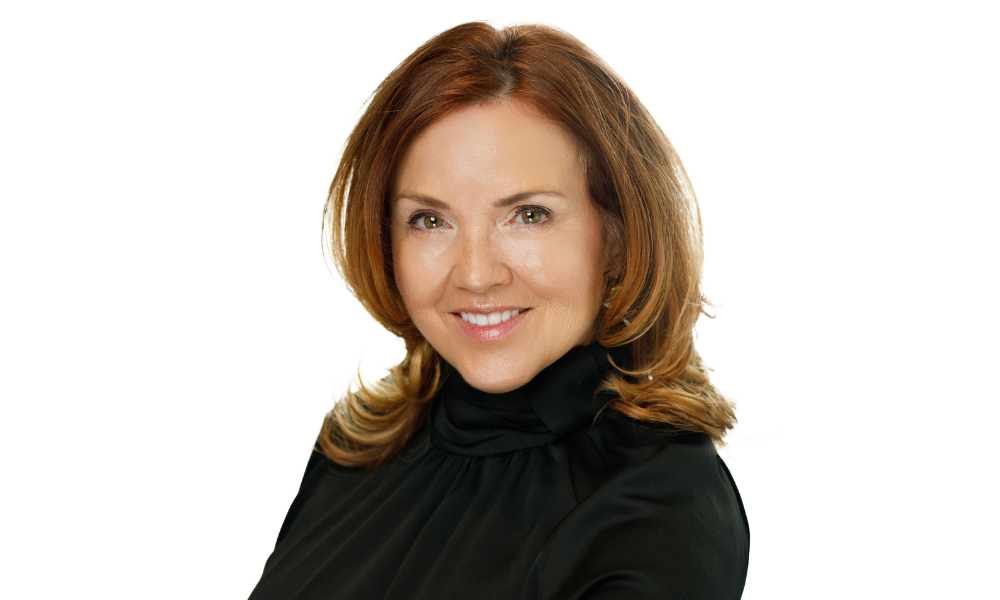Laurel Marie Hickey explains the approach she will take when clients inform her they are electing for medical assistance in dying

Laurel Marie Hickey is always preparing for the next big conversation with clients. The Senior Wealth Advisor & Senior Portfolio Manager at Wellington-Altus Private Wealth already works extensively with clients diagnosed with terminal illnesses, serving their financial and emotional needs in a challenging time. She is now getting ready for clients to bring up the option of medical assistance in dying (MAID) and the impacts that choice can have on their financial and estate plans.
MAID comes with a strict legal framework governing its administration, and Hickey emphasizes that she would never weigh in on the medical side of that decision. As a fiduciary to her clients, however, she is prepared to talk them through the financial and estate consequences and help act as a central point of contact for the financial impacts of pursuing MAID for the whole family. As she does so, she operates from a core place of empathy to the client and their family situation.
“It's such a personal conversation that you really have to hold space for the conversation and really walk that path with that client. This is where you need to be present and empathetic, not just technically proficient. We can action it out, but let's really have that heartfelt conversation about what's important to you,” says Hickey. “Normally, when clients share something. We have so many stories. But in this case you just have to hold the space and be comfortable with a little bit of silence because we don't have a comparable story. We can't even comment on what their choice is. We're not medical professionals. So really, it's just being absolutely present and empathetic.”
Operating from that place of empathy, Hickey says advisors can do a great deal to help clients who have elected to pursue MAID. That work can flow out of a topic she raises at the end of each client meeting: the estate plan. Despite most clients’ reticence to make and discuss estate plans, Hickey notes that her frequent discussion of that important planning work often results in a more comprehensive idea of what the clients want. She can then execute on those plans as they pertain to her work.
Those plans often involve other family members and loved ones, and in a situation like the choice to pursue MAID advisors may need to bring certain family members in. Hickey stresses the importance of client confidentiality in these scenarios. She also emphasizes with clients what she can and cannot speak to in her role as their advisor. Within those confines she will discuss areas like life insurance, designated beneficiaries and their importance in the execution of the estate plan.
MAID also gives advisors something that no other situation in a client’s life would: an end date. With a specific date set for when the client may pass away, Hickey says that estate tax planning can be conducted in advance and significant unresolved issues can be addressed before that date. From both a legacy planning and tax perspective she can talk to clients about potential charitable donations and asset liquidations to give gifts to family members. She can even talk about funerary wishes and the funds set aside for those costs.
Living gifts have already become a common feature of modern estate planning, giving clients the opportunity to see positive impacts from their inheritance before they pass away. When she facilitates those gifts for most clients, Hickey notes that she calculates out what can be given based on how much might be needed for an extended lifespan. In the case of a client pursuing MAID, however, that end date offers a clearer picture of what is required and allows for larger living gifts than might otherwise be possible.
Just as she facilitates conversations between family members, Hickey also sees her role in these situations as a facilitator for the other professionals serving a client. The relationships that clients have with their advisors can be very strong, quite possibly stronger than what they might have with their lawyers or accountants. Using that relationship, Hickey can serve as a hub of the client’s affairs, helping to bring in those other experts where needed but ensuring that the process is guided by someone the client trusts completely. As this choice becomes more commonplace among an aging population, Hickey believes all advisors need to be positioning themselves to ensure they can serve their clients wishes in the best way that these circumstances allow.
“I need to be there to support every client conversation. It is a clients’ choice for their life path and it is for me to meet them where they're at,” Hickey says. “But I really do feel that certainly in Canada, a lot of people do not have their will, personal directive, power of attorney. And so it is important to speak to that and if I'm their go-to person it's not okay for me to say ‘I don't have an answer to that’ it’s for me to find an answer and to help them walk this path to find the answers that they need with their choice.”



